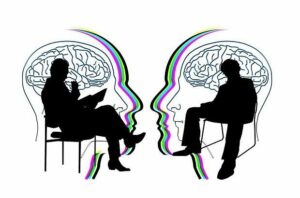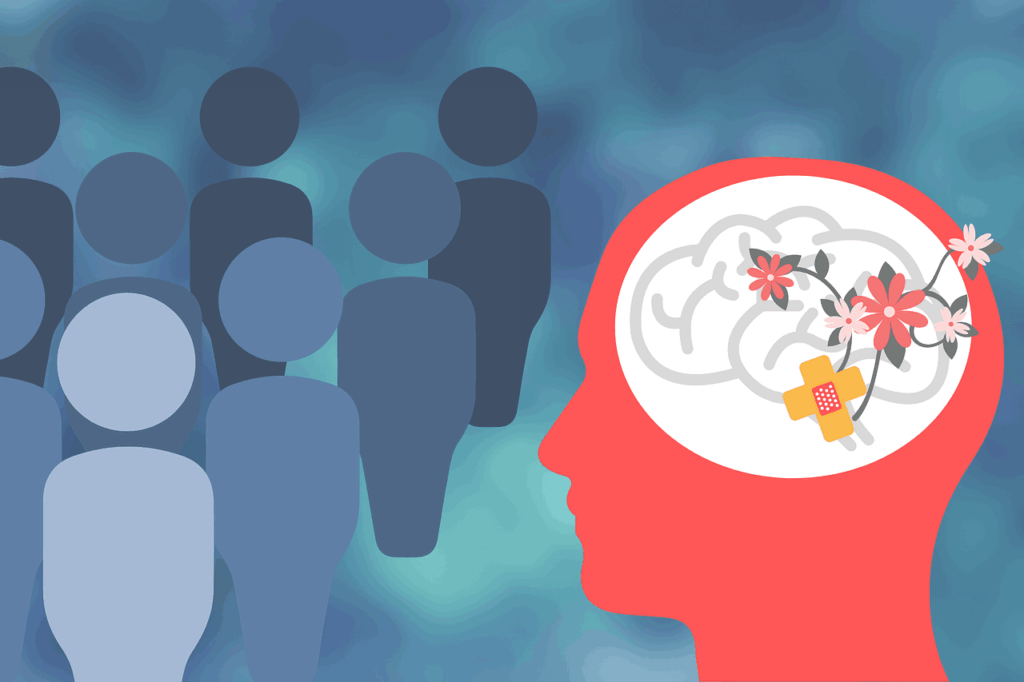Psychology is a fascinating field that constantly evolves to understand and address the complexities of human behavior and mental processes in the modern world. In this blog, we will delve into the latest insights, research, and applications of contemporary psychology. From exploring innovative therapies to understanding the impact of social, cultural, and technological factors on human psychology, we aim to provide valuable information and insights. We will also provide some recommendations for books on contemporary psychology.
Contents
What Is Contemporary Psychology?
 Contemporary psychology is the scientific study of human behavior and mental processes using current theories, methods, and approaches. It encompasses various areas, such as cognitive psychology, social psychology, developmental psychology, clinical psychology, and neuroscience.
Contemporary psychology is the scientific study of human behavior and mental processes using current theories, methods, and approaches. It encompasses various areas, such as cognitive psychology, social psychology, developmental psychology, clinical psychology, and neuroscience.
Contemporary psychologists conduct research, apply principles to understand and solve real-world problems and promote mental health and well-being. They may study topics like perception, memory, emotions, personality, motivation, and psychopathology, using empirical methods to gather data and develop evidence-based theories and interventions.
Approaches In Contemporary Psychology
Here are six approaches in contemporary psychology:
Cognitive Psychology
Cognitive psychology is a field that focuses on the study of mental processes. Including how people perceive, think, reason, problem-solve, and remember information. Psychologists use experimental methods to investigate how cognitive processes work, such as studying memory encoding and retrieval, decision-making, language processing, and attention. They also explore cognitive biases, cognitive development across the lifespan, and cognitive disorders like Alzheimer’s disease.
Behavioral Psychology
Behavioral psychology, also known as behaviorism, emphasizes the role of observable behavior in understanding human behavior. Psychologists study how behavior is learned, shaped, and modified through conditioning, reinforcement, and punishment. They investigate how environmental factors, such as rewards and punishments, influence behavior, and how behaviors can be changed through behavioral interventions like behavior modification and applied behavior analysis. Behavioral psychologists also study topics like habit formation, behavioral addictions, and behavioral economics.
Biological Psychology
Biological psychology, also known as biopsychology or neuroscience, explores the relationship between biology and behavior. Psychologists study how physiological processes in the brain, nervous system, and other parts of the body influence behavior, emotions, and mental processes. They investigate topics such as brain structure and function, neurochemistry, genetics, and the role of hormones in behavior. They also study neurological disorders like Parkinson’s disease, schizophrenia, and epilepsy to better understand the biological basis of behavior and mental disorders.
Social Psychology
 Social psychology is the study of how social factors influence human behavior. Psychologists investigate how people think about, perceive, and interact with others. They study topics such as social cognition (how people process social information), social influence (how others influence our behavior), and social interaction (how people behave in social situations).
Social psychology is the study of how social factors influence human behavior. Psychologists investigate how people think about, perceive, and interact with others. They study topics such as social cognition (how people process social information), social influence (how others influence our behavior), and social interaction (how people behave in social situations).
Social psychologists also examine topics like attitudes, prejudice, conformity, obedience, group dynamics, and interpersonal relationships, to understand how social factors shape human behavior and mental processes.
Developmental Psychology
Developmental psychology is the study of how humans change and develop across their lifespans. Psychologists study physical, cognitive, emotional, and social development from infancy to old age. They investigate topics such as motor skills development, cognitive development (such as language acquisition and problem-solving abilities), emotional development (such as emotional regulation and attachment), and social development (such as peer relationships and identity formation). Developmental psychologists also study how various factors, such as genetics, environment, culture, and socialization, influence the developmental process.
Humanistic Psychology
Humanistic psychology is an approach that emphasizes the unique qualities of human beings, including their subjective experiences, self-awareness, and personal growth. Psychologists focus on understanding human behavior in terms of individuality, self-determination, and self-actualization. They emphasize the importance of human values, emotions, and subjective perceptions in shaping behavior and mental processes. Humanistic psychologists often use qualitative research methods, such as interviews and phenomenological approaches, to explore subjective experiences, consciousness, and the human quest for meaning and fulfillment.
Applications Of Contemporary Psychology
 Contemporary psychology has a wide range of applications in various areas of human life. Some of the key applications of contemporary psychology include:
Contemporary psychology has a wide range of applications in various areas of human life. Some of the key applications of contemporary psychology include:
- Clinical and counseling psychology: Contemporary psychology is widely applied in clinical and counseling settings to assess, diagnose, and treat individuals with mental health disorders. Psychologists use evidence-based approaches and therapies to help individuals improve their mental health, cope with life stressors, manage emotional difficulties, and enhance their well-being.
- Educational psychology: It is applied in educational settings to understand how individuals learn and develop, and to improve educational practices. Psychologists study factors such as cognition, motivation, and social interactions to inform instructional design, assessment, and classroom management strategies.
- Organizational psychology: It is used in organizations to understand and optimize human behavior in the workplace. Psychologists apply organizational behavior, leadership, and motivation principles to improve employee performance, job satisfaction, and organizational productivity.
- Sports psychology: Contemporary psychology is applied in sports settings to enhance athletes’ performance, motivation, and mental well-being. Psychologists work with athletes to improve their mental skills, such as focus, concentration, and goal setting, and to manage performance anxiety and stress.
- Forensic psychology: Contemporary psychology is applied in legal and criminal justice settings to understand human behavior and mental processes related to criminal behavior, witness testimony, and jury decision-making. Psychologists may conduct psychological assessments, provide expert testimony, and contribute to criminal profiling and risk assessment.
- Health psychology: Contemporary psychology is applied in healthcare settings to understand the psychological factors that influence physical health and wellness.
- Research and academia: Contemporary psychology is applied in research settings to conduct empirical research, develop theories, and advance our understanding of human behavior and mental processes. Psychologists in academia contribute to teaching, training, and mentoring future psychologists.
Some Books On Contemporary Psychology
 Given below are some books that offer a deep understanding of contemporary psychology:
Given below are some books that offer a deep understanding of contemporary psychology:
- “The Oxford Handbook of Contemporary Phenomenology and Cognitive Science” edited by Shaun Gallagher and Dan Zahavi
- “Contemporary Clinical Psychology” by Thomas G. Plante
- “Contemporary Intellectual Assessment: Theories, Tests, and Issues” by Dawn P. Flanagan and Patti L. Harrison
- “Contemporary Psychoanalysis and Modern Jewish Philosophy: Two Languages of Love” by Michael Oppenheim
- “Contemporary Human Behavior Theory: A Critical Perspective for Social Work” by Susan P. Robbins, Pranab Chatterjee, and Edward R. Canda
- “Contemporary Issues in Clinical Psychology” edited by Peter E. Nathan and Gerald C. Davison
- “Contemporary Health Psychology: Biopsychosocial Interactions” by Linda Brannon
- “Contemporary Sport Psychology” edited by Dieter Hackfort and Joachim L. Grabowski
- “Contemporary Perspectives on Rational Suicide” edited by Peter C. Britton and Thomas E. Ellis
- “Contemporary Directions in Psychopathology: Scientific Foundations of the DSM-5 and ICD-11” edited by Theodore Millon, Robert F. Krueger, and Erik Simonsen
Please note that this is not an exhaustive list and many other books offer deep insights into contemporary psychology. It is recommended to consult academic journals, research articles, and other reputable sources in addition to books to gain a comprehensive understanding of contemporary psychology.
Conclusion
In conclusion, contemporary psychology is a multidisciplinary field that encompasses a wide range of theories, approaches, and applications in understanding and explaining human behavior and mental processes. From clinical and counseling settings to educational, organizational, sports, forensic, health, community, and human factors contexts, psychology is applied to enhance individual and societal well-being. With its evidence-based approaches and empirical research, contemporary psychology continues to contribute to our understanding of human nature and inform practical interventions in various areas of human life.
For more information, please contact MantraCare. Online therapy types include videoconferencing, phone sessions, messaging-based therapy, chat-based therapy, and therapy based on different problems. If you have any queries regarding Online Counseling experienced therapists at MantraCare can help: Book a trial therapy session.


